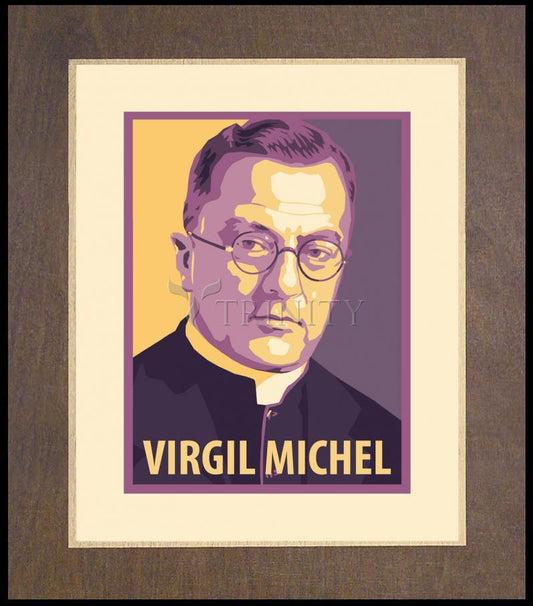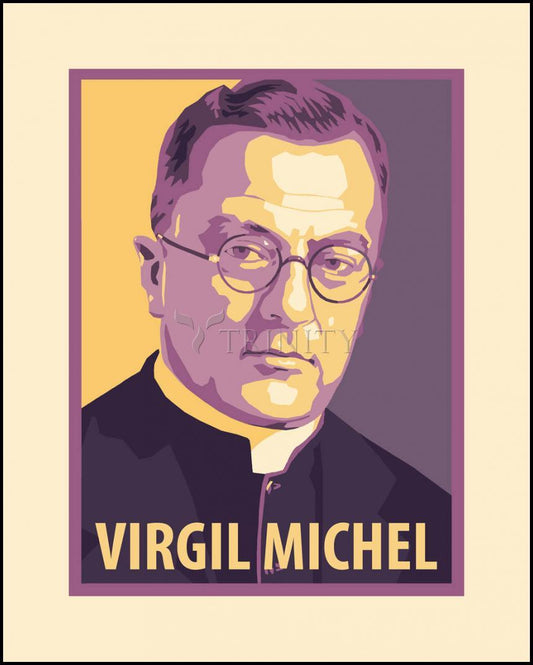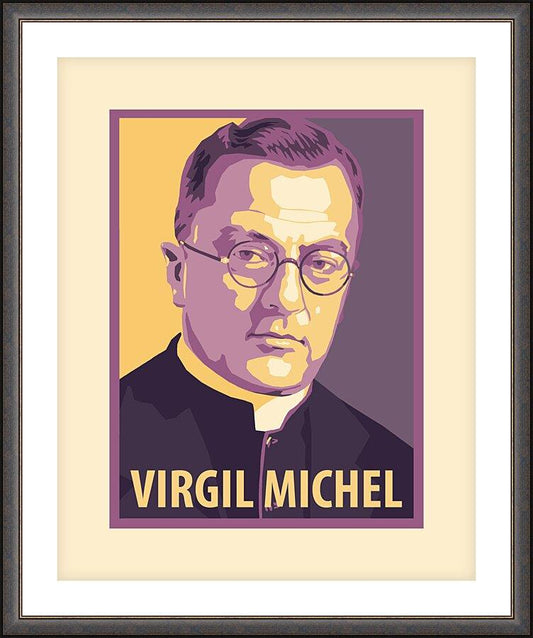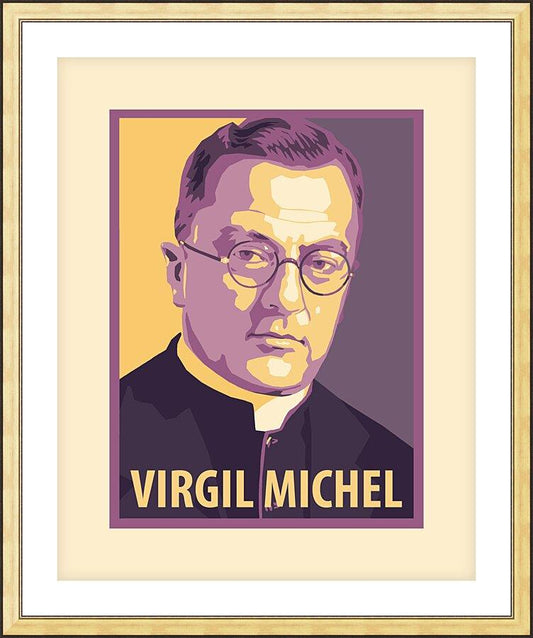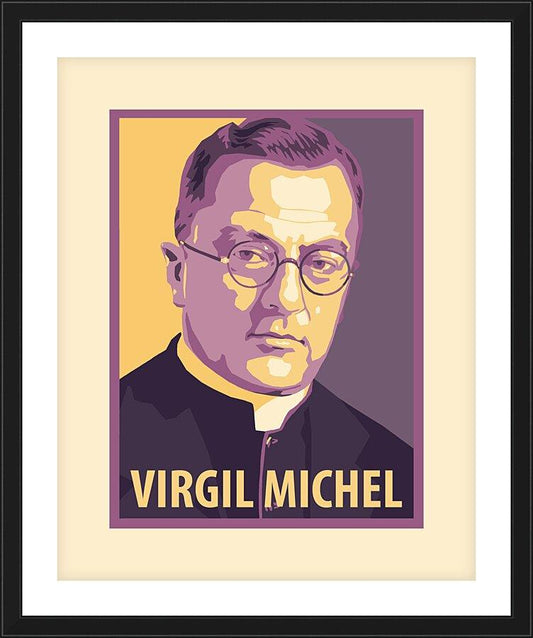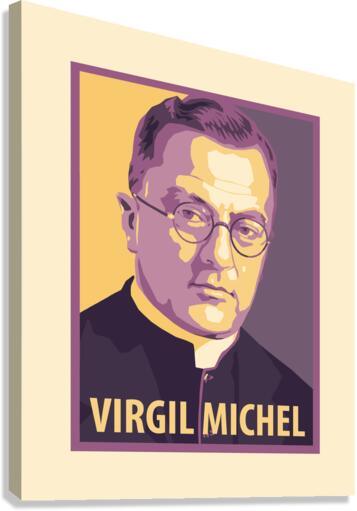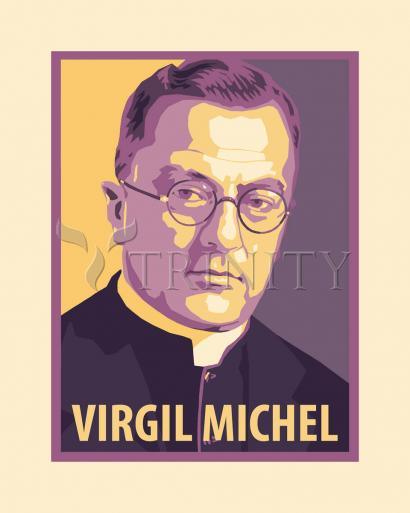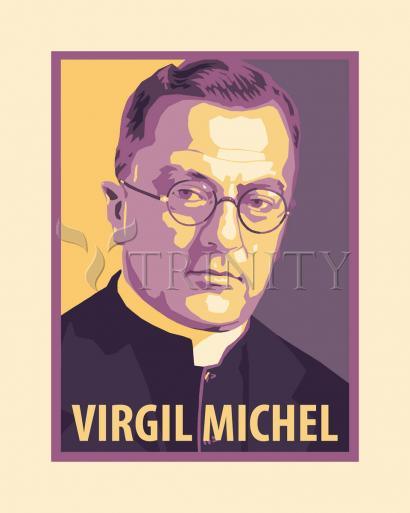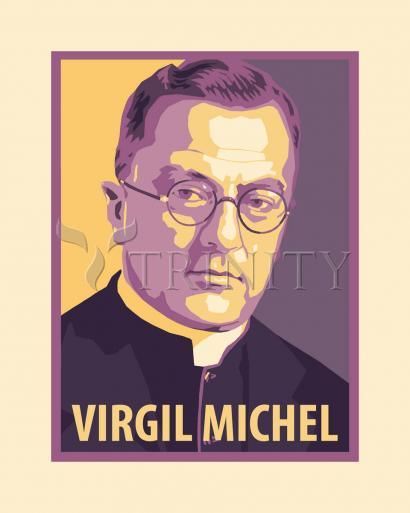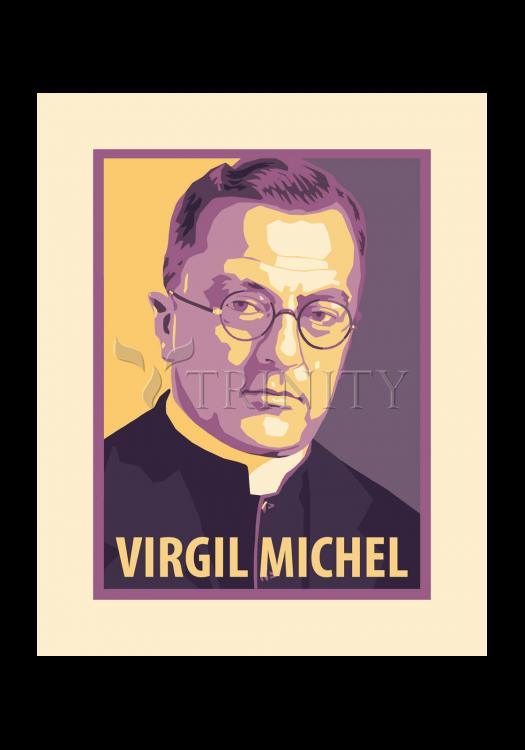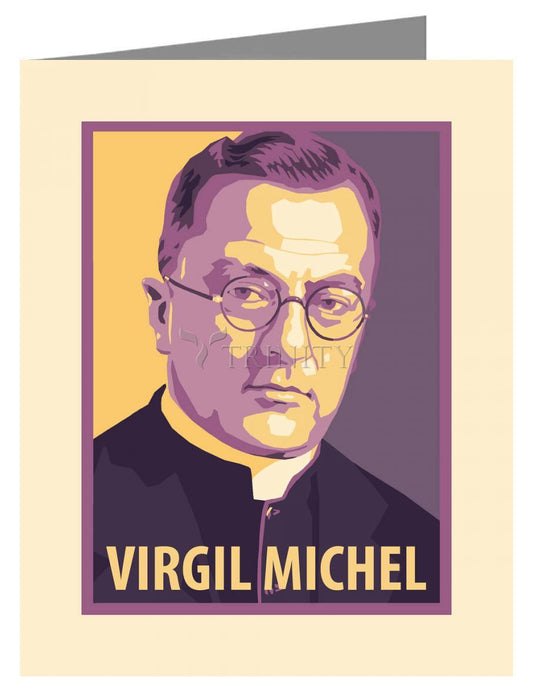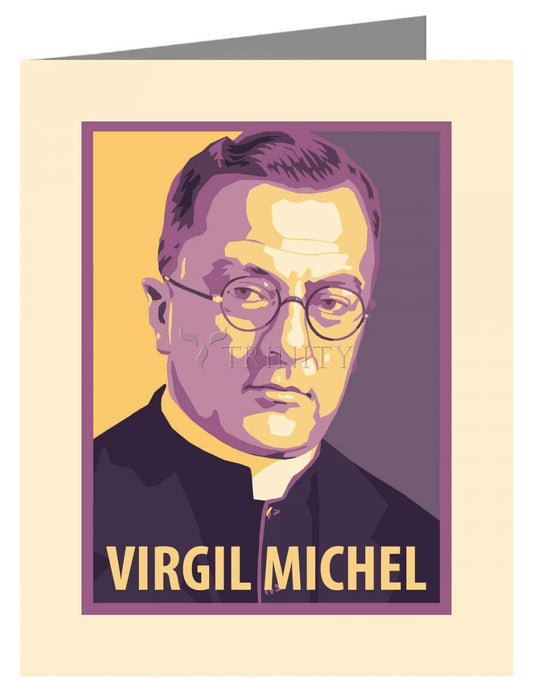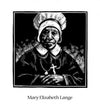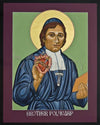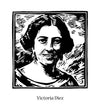ARTIST: Julie Lonneman
ARTWORK NARRATIVE:
The Benedictine priest Virgil Michel is widely regarded as one of the founders of the liturgical movement in the United States. Fr. Michel believed that liturgy creates Christian community; that it is, in fact, the source and center of all Christian life. He taught that social justice cannot be separated from liturgy. Central to his theology was the revival of the concept of the church as the body of Christ. Eventually many of his ideas were incorporated into Vatican II’s constitution on the liturgy.
“If the first purpose of the liturgical movement is to lead the faithful into more intimate participation in the liturgy of the Church, then the further objective must also be of getting the liturgical spirit to radiate forth from the altar of Christ into every aspect of the daily life of the Christian.”
—Virgil Michel
Read More
Considered the founder of the Liturgical Movement in the United States, Rev. Virgil Michel, a monk of Saint John's Abbey in Collegeville, Minnesota, lived from 1890 to 1938. After writing a doctoral dissertation on Orestes Brownson's thoughts on social reform, Michel studied philosophy in Rome and Louvain, visiting the monasteries of Maria Laach and Mt. César, where the new ideas of the Liturgical Movement were germinating. He returned to the United States and grew convinced that the Catholic liturgy was the basis for social regeneration. In 1926 he founded the highly influential liturgical journal Orate Fratres, now known as Worship, as well as the Liturgical Press.
Michel was the author of numerous books as well as the translator of European liturgical classics. In his 1937 book The Liturgy of the Church, Michel set the stage for the discussion of the liturgy in the terms so common today: full, conscious, active and fruitful participation. Michael argued that liturgical books contained the fundamental truths of the Faith, and that the people should not be denied access to these truths. He therefore argued for their "conscientious and intelligent" use by the laity as well as clerics. He claimed that there is "no worship without intelligence," because only humans as rational animals could offer worship to God by consciously using their interior mental faculties. Exteriorizing this internal worship in active participation brought together the full participation of both body and soul, bringing honor to God and sanctiï¬cation to mankind. This sanctiï¬cation would therefore prove fruitful in daily life, leading individuals to see their Christian duty towards themselves and others and therefore bring about social regeneration.
"Excerpts from "Virgil Michel and The Liturgical Movement in the United States", The Liturgical Institute.



